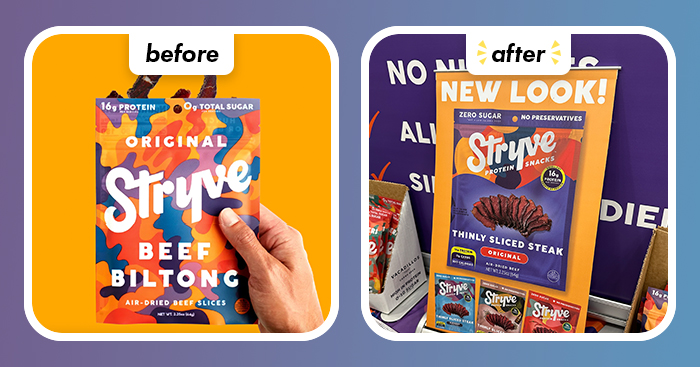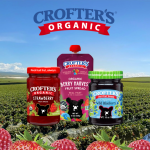Stryve Completes Portfolio Cuts, Shifts Focus to Distribution Growth

Stryve Foods announced a 37% drop in net sales year-over-year to $4.6 million during a Q1 earnings call yesterday, which executives at the air-dried meat snack maker attributed primarily to the company’s portfolio rationalization efforts. The project includes the discontinuation of slow-moving, lower-margin items, approximately 180 SKUs in total, and non-profitable accounts.
In the quarter ended March 31, the company reported $5.2 million in operating expenses, which “compares favorably” to the prior year’s figure of $8.3 million. Previously, Stryve committed to removing 50% of operating expenses in the back half of 2022, which the company claims it exceeded.
“We have materially reduced cash operating expenses and narrowed losses again this quarter,” said COO Alex Hawkins in a prepared statement. “We have made further strides to establish a leaner, more productive organization, with streamlined operations and better offerings, and a cost structure well positioned to deliver profitability in the future with increased revenues.”
He continued, “With a significantly improved value proposition on our products, dramatically improved price-mix, relatable operational processes, better procurement and improving yields, we have built a sustainable operating company.”
Founded in 2017, Stryve produces a portfolio of meat snacks under the Braaitime, Stryve, Kalahari and Vacadillos banners. In an effort to broaden the reach of its products, Stryve recently announced it will swap out the term “beef biltong” for “sliced steak” in its on-pack copy.

With portfolio rationalization and optimization now complete, the company is slated to roll out its new packaging by the end of Q2, said Hawkins. Once the transition from its legacy packaging is complete, he believes inventory levels will come down over the balance of the year.
Stryve has also shifted its focus to distribution growth. In the quarter, the company landed its new product innovation, Vacadillos beef sticks, in approximately 10,000 7-Eleven and Speedway stores nationwide. Additionally, the company expanded the availability of its Kalahari Grass Fed varieties, now available at Whole Foods Market nationwide.
In April, the company secured $4.1 million in debt financing to fuel near-term growth plans, including distributions gains in the second quarter. The financing is in the form of promissory notes “subordinate to Stryve’s senior lenders” and was funded by a combination of various investors and company insiders, according to a press release.
During yesterday’s earnings call, the company said distribution will be the primary driver of growth for the foreseeable future.
“We have seen positive traction with new distribution wins this year. Given that we are just beginning to scratch the surface of the retail market with our superior offerings, we believe that the second quarter will yield step function growth on a sequential basis due to distribution headwinds online,” Hawkins told investors during the call.
In Q4 2022, Stryve said although it believes the discontinuation of slow-moving, low-margin items and non-profitable accounts will help stabilize the company’s sales in 2023, it expects only flat to modest growth by year-end compared to 2022.
During the Q1 2023 earnings call, Stryve reaffirmed its full year fiscal 2023 guidance of $28 to $34 million.
“With our strategic plan processing as expected, we see significant improvements in our cost model across our business,” said Stryve CEO Chris Boever in the release. “Our productivity program is unlocking operational improvements resulting in further cost reductions and better margins.”


















